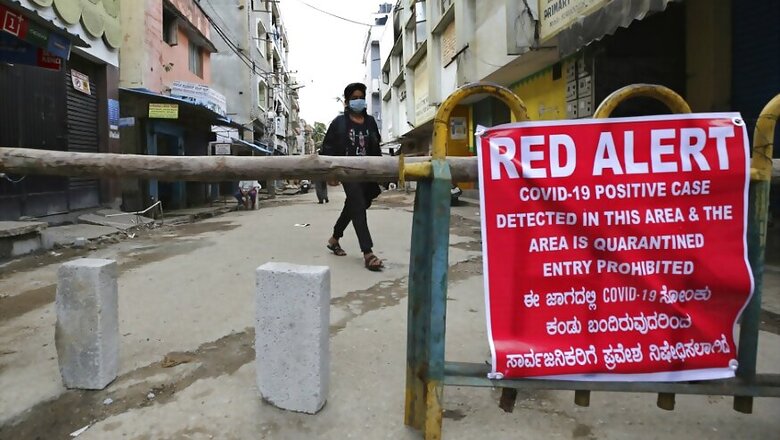
views
From a ‘model’ city hailed for its Covid-19 containment efforts, Bengaluru is now under a strict 7-day lockdown, from July 14 to 22 after witnessing an exponential rise in the number of cases during the last two and a half weeks.
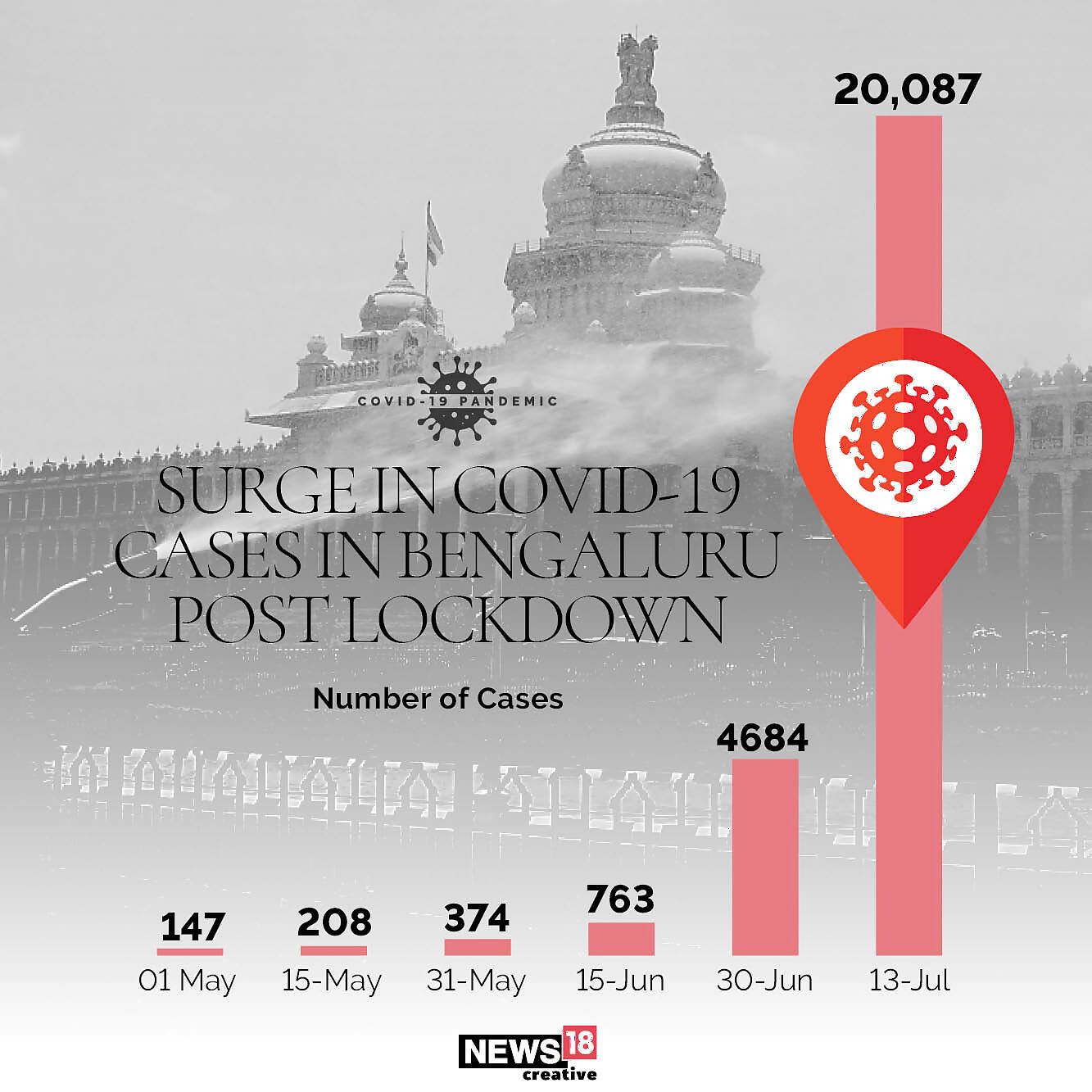
Surge in Cases
Bengaluru (Urban + Rural) had recorded just 374 cases till the end of the lockdown on May 31. Just for perspective, Delhi had already registered 19,844 cases, Chennai had 14,799 and Mumbai had 39,686 cases.
Post the lifting of the restrictions, Bengaluru first witnessed a major surge from the 19th of June and registered 140 cases, on an average, every day for a week till the 25th. This was a big jump from an average 38 cases daily in the previous week (June 12 to 18).
But thereafter it has witnessed an unprecedented surge in cases.
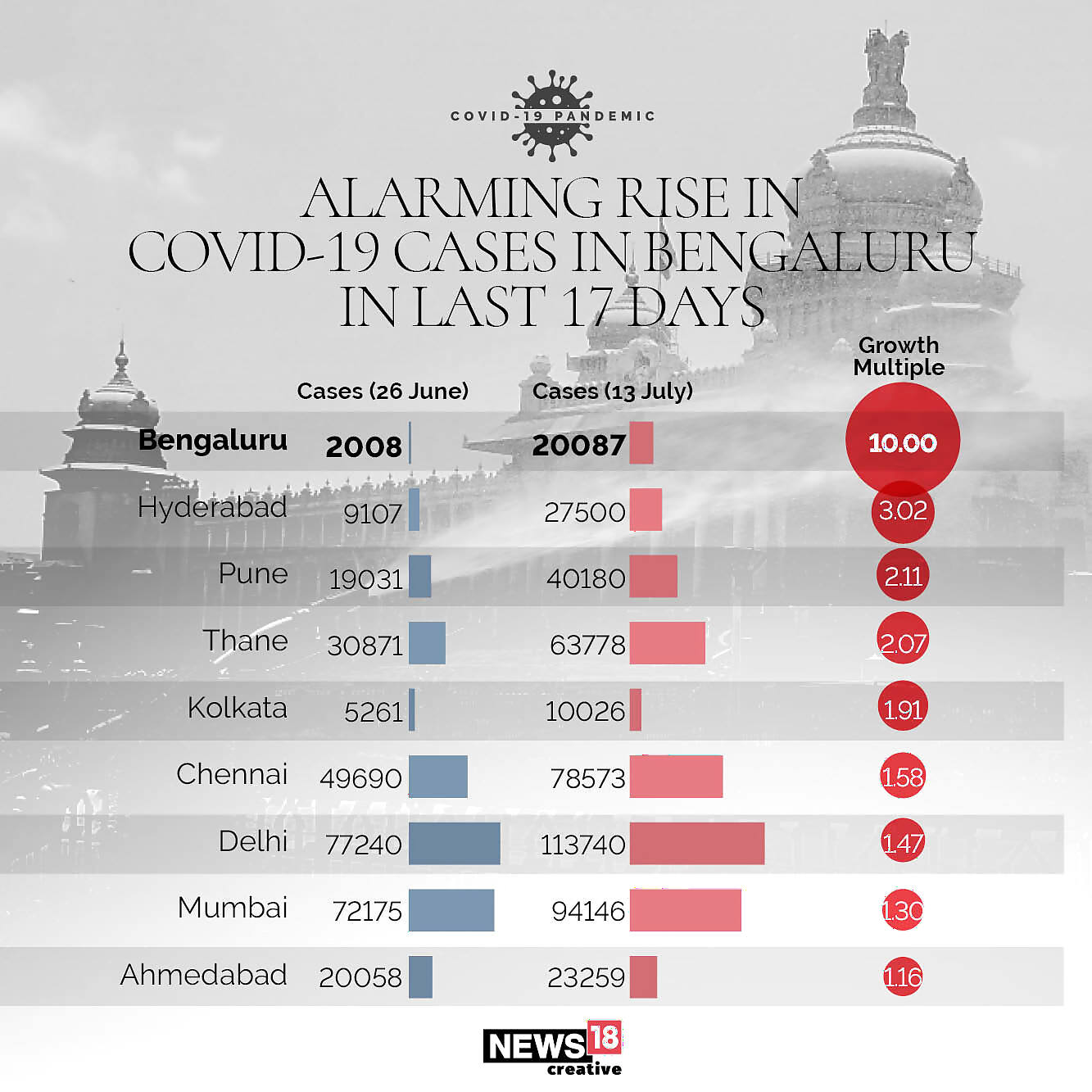
Bengaluru’s cases have risen at an alarming rate since June 27. They have multiplied by more than 10 times in this 17-day period, which is by far the highest growth rate for any major city in India.
From 2,008 cases on June 26, the city has crossed 20,000 cases by the 13th of July. Bengaluru accounted for just 10.58 per cent of Karnataka’s cases till mid June. That percentage rose to 30.73 per cent till the end of the month. As of July 13, the capital of Karnataka contributes almost half (48.31 per cent) of the total number of Covid-19 cases in the state.
Till mid-May, Bengaluru did not even feature in the 40 worst affected cities (in terms of the number of cases) in India. It has now one of the 8 cities in the infamous 20,000-plus club.
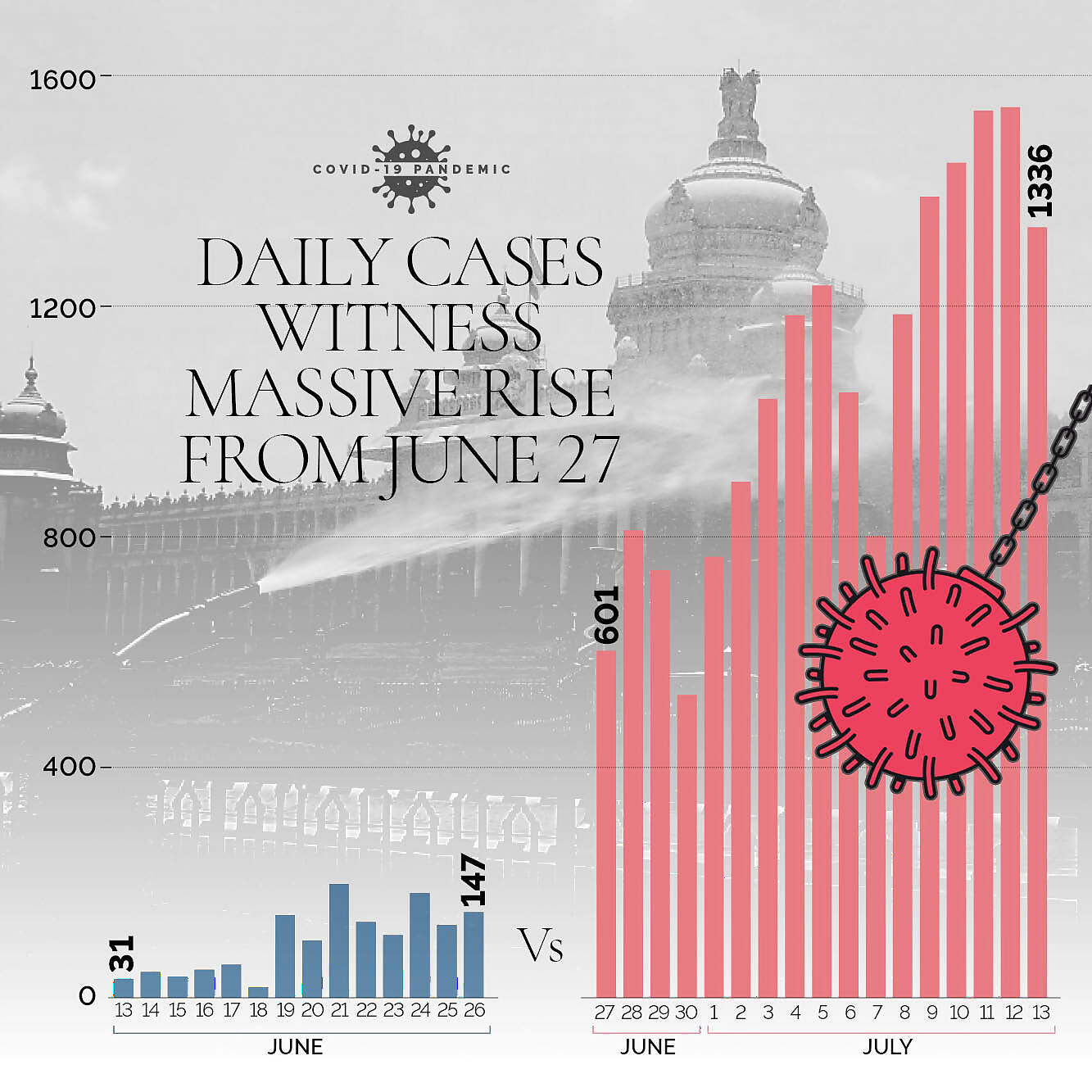
Bengaluru has added 18,079 cases in the last two and a half weeks (June 27-July 13) averaging above a thousand daily cases in this period. With the exception of the 7th, it has recorded more than 1,000 daily cases every day since the 3rd of July. The city witnessed its highest single-day surge on July 12 with 1,544 cases. It registered a higher daily count (1,336 cases) than Delhi (1,246), Mumbai (1,158) and Chennai (1,235) on July 13.
The containment zones in the city have also gone up from 63 on May 31 to 554 on June 30 to 4,616 on July 12.
Increase in Positivity Rate
Along with the surge in cases, what is concerning for Bengaluru (Urban) is the increase in the Positivity Rate. It (Cumulative Positivity Rate) has gone up from 1.17 per cent on the 31st of May to 4.11 per cent (June 30) to 10.97 per cent on July 12.
What is worrying is the rise in the Daily Positivity Rate (DPR) of Bengaluru in the last few days. It crossed 25 per cent on the 9th and 10th of July, which implies that one in every four people tested on those days in the city was positive. The Average Positivity Rate between July 6 and 11 was 22.35 per cent.
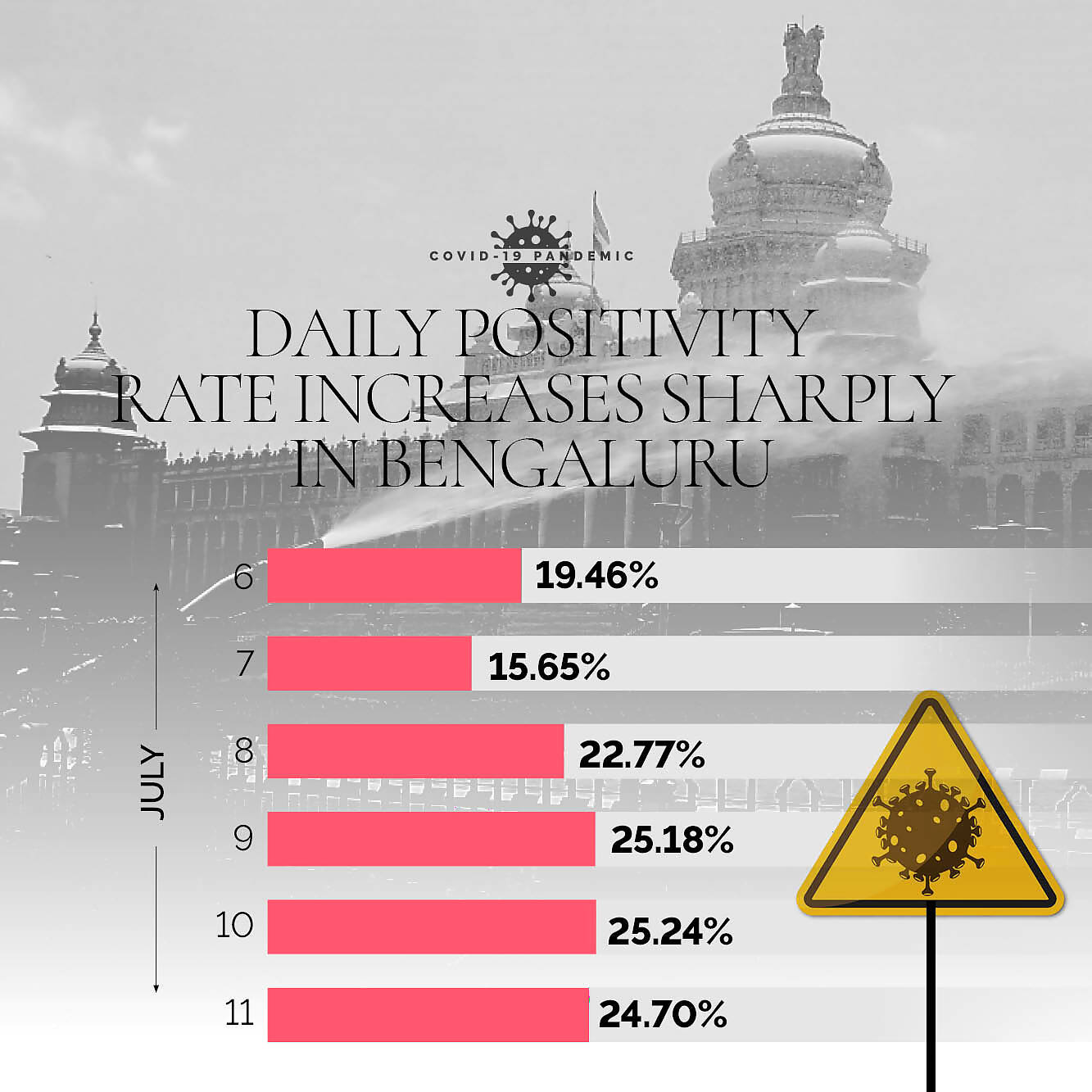
Rise in Fatalities in July
Bengaluru (Urban) has recorded a spike in the number of Covid-19 deaths in the last 10 days. The city had a total of 105 fatalities till the 3rd of July but has witnessed more than double (216) the number in just one and a half weeks since then.
It has registered a higher number of deaths (92) in the last two days (July 12 and 13) than Delhi (77), Mumbai (91) and Chennai (56).
The only silver lining for Bengaluru is that its Mortality Rate has come down from 2.03 per cent on June 30 to 1.6 per cent on July 13. But this is more a factor of the huge rise in the number of cases.
Bangalore had been initially successful relying on the 4Ts of testing, tracing, tracking and treatment. But the end of the lockdown and the easing of curbs led to violation of social distancing norms, inter-city, inter-district and inter-state movement and subsequently a sudden surge in cases with the authorities not equipped to tackle the heavy case-load.
For the period between June 23 and July 7, the source of transmission remained untraced (till July 9) in as many as 9,867 of the 9,964 reported cases, that is, 99.02 per cent.
Perhaps, there lies the story!




















Comments
0 comment